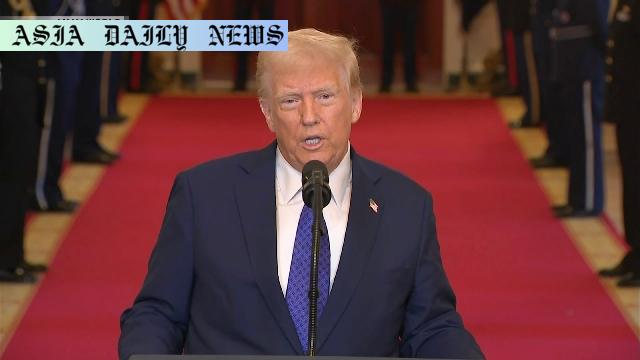Gaza: Trump reignites global debate with US Gaza Strip takeover proposal.
- Gaza: Trump proposes a controversial US takeover of Gaza Strip.
- Plan includes global development teams without US troops.
- Proposal drew international condemnation and sparked debates on sovereignty and ethics.
- Relocation of Gaza residents suggested, raising human rights concerns.

Introduction to the US Gaza Takeover Proposal
On Thursday, US President Donald Trump reiterated his earlier proposal for the United States to assume control over the Gaza Strip. This controversial suggestion, conveyed through his social media platform, outlines transferring Gaza’s control from Israel to the United States once ongoing conflicts cease. Trump envisions the region’s transformation into a major development hub, leveraging global collaboration and expertise.
Key Proposal Features and Vision
Trump’s plan emphasizes revitalizing Gaza with international development teams, aiming to create “one of the greatest and most spectacular developments of its kind on Earth.” Interestingly, he asserted that the proposal does not necessitate the deployment of US soldiers. However, during a White House press conference with Israeli Prime Minister Benjamin Netanyahu earlier in the week, Trump left the possibility of military involvement open, stating US troops might be sent “if necessary.” This inconsistent stance has raised questions globally.
International Condemnation and Ethical Concerns
The proposal has received widespread backlash internationally, especially for its suggestion to relocate Gaza’s residents out of their territory. Critics argue it undermines Palestinian sovereignty and self-determination. In addition, the idea of relocating people and unilaterally redesigning a contentious area has sparked ethical and human rights debates.
Implications for Regional Stability
Trump’s proposal also carries significant implications for the stability of the Middle Eastern region. If implemented, it could exacerbate tensions between Israel and Palestine and further complicate ongoing conflicts. Meanwhile, the historical challenges of global powers assuming control in geopolitically sensitive areas raise skepticism regarding the proposal’s feasibility.
Analysis of Trump’s Development Vision
The notion of transforming Gaza into a global development hotspot may be ambitious, but it glosses over the deeper, systemic socio-economic and political challenges. Building infrastructure and fostering economic growth could lead to long-term prosperity, but experts stress that such efforts must be inclusive and aligned with the aspirations of the local population.
Conclusion: The Broader Implications
Ultimately, Trump’s Gaza Strip proposal underscores the complexity of international politics and the sensitivities surrounding territorial disputes. While the vision of a thriving, redeveloped Gaza is appealing, the ethical, legal, and political ramifications make this approach contentious. Moving forward, it remains crucial for policymakers to consider the voices of all stakeholders involved.



Commentary
The Ethical Dilemma of Territorial Control
The suggestion put forth by President Trump to have the United States assume control of Gaza raises substantial ethical and territorial sovereignty concerns. Many would argue that Gaza, as a center of Palestinian identity and struggle, should never be subjected to unilateral decisions by external powers. Such a proposition disregards the right to self-determination, a principle upheld in international law.
Potential Outcomes and Missed Opportunities
While the idea of transforming Gaza into a global development hub is praiseworthy, forcibly imposing such strategies undermines their viability. Development must be inclusive and respectful of the local context, otherwise it risks fostering resentment rather than growth. Proposals of relocation and external control might further entrench divisions in an already volatile region.
The Importance of Collaboration, Not Domination
What Gaza needs is not control from another superpower but a collaborative effort that empowers local leaders and communities. The involvement of international actors must come in the form of support, not domination, to ensure Gaza’s development respects its people’s wishes and values.
Conclusion: A Time for Thoughtful Leadership
Trump’s proposal for Gaza is bold, but boldness without thoughtful consideration can lead to failure. The Middle East remains one of the most complex regions in the world; thus, any approach must tread carefully, with diplomacy and mutual respect taking precedence.